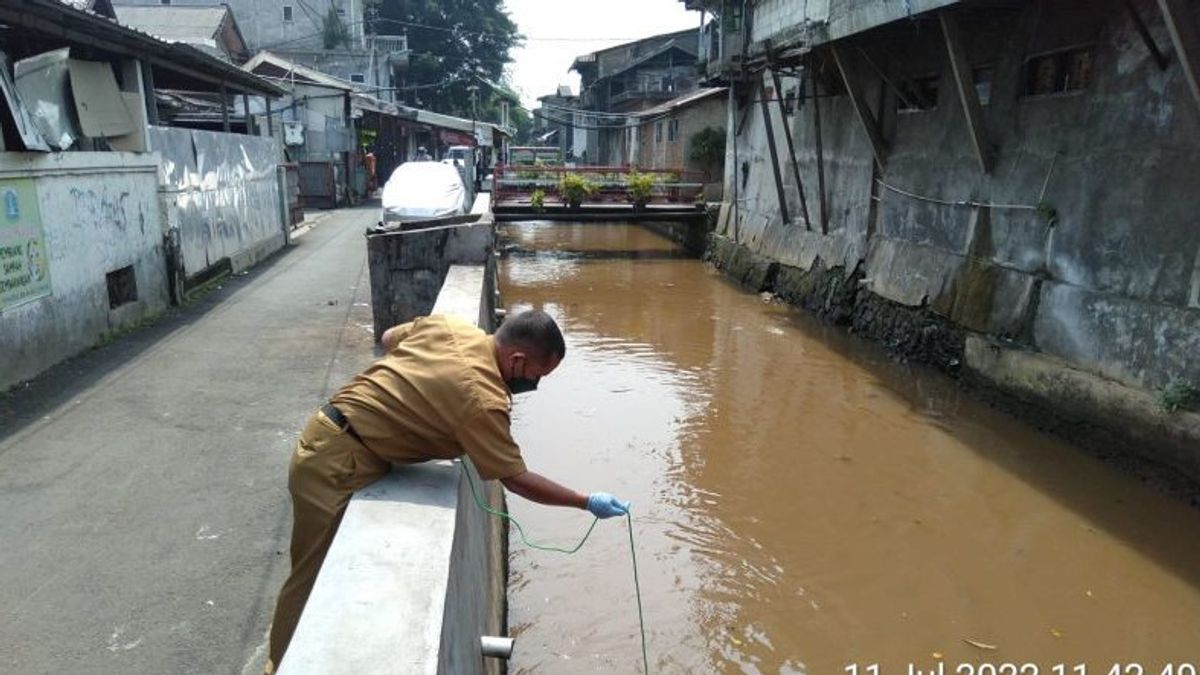JAKARTA - The DKI Jakarta Environmental Agency (DLH) has confirmed that the mass death of broom fish in the Kalibaru River, Kramat Jati, East Jakarta some time ago was not due to the waste of the sacrifice.
"If the cause of death is suspected to be the disposal of sacrificial waste, then this can happen to many rivers in DKI Jakarta," said Head of the DKI Jakarta Environmental Agency Asep Kuswanto in his statement in Jakarta, Antara, Friday, July 29.
This, said Asep, was based on a study conducted by his party in collaboration with the Environmental Research Center of the Bogor Agricultural University (PPLH IPB) to investigate the cause of the death of broom fish in the East Kalibaru River, Kramat Jati, East Jakarta.
"However, because the mass mortality of fish only occurred on a local scale in one section of the East Kalibaru River, there is a possibility of unusual events in the form of waste disposal with a very large discharge or a very high concentration of waste, which then spreads directly into the river section which can lead to a causing drastic changes in water quality, thus causing mass deaths of broomfish that live in the area," he said.
For this study, Asep said that after the mass death of broomstick fish in the East Kalibaru River on July 11, 2022, a team from the DKI Jakarta Provincial Environment Service conducted an investigation by taking samples of river water at the scene on the same day which were then taken to the laboratory. Regional Environment (LLHD) of DKI Jakarta Province for further analysis.
From the results of the analysis, he continued, there was indeed a sharp increase in values on the day of the incident for several water quality parameters when compared to the data from the range of routine monitoring results and quality standards.
DLH, said Asep, routinely monitors river water quality in four periods representing the rainy, dry and inter-seasonal transitions at 120 monitoring points throughout Jakarta.
Several water quality parameters were found to have markedly increased, said Asep, including BOD which at the time of the incident was 68 mg/L (3 mg/L standard), COD 309 mg/L (25 mg/L quality standard), and Fecal Coliform 1,400,000 MPN/100ml (standard quality 1000 MPN/100ml).
"Based on the study, it was concluded that the cause of the mass death of the broomfish, which was dominant there at that time, was strongly suspected to have come from unusual domestic activities, such as waste disposal with very large discharges or other special events," he said.
Based on the findings, he said, further steps to be taken by the Environment Service were to carry out an inventory of sources of domestic pollution, whether originating from settlements, offices, small-medium scale industries, large-scale industries and other activities in the river segment.
"If the cause is more dominant than household activities, then the location can be a priority for making communal or eco-riparian WWTPs in collaboration with the Water Resources Service (SDA) and the City Parks and Forest Service (DPHK). domestic waste management," he added.
The English, Chinese, Japanese, Arabic, and French versions are automatically generated by the AI. So there may still be inaccuracies in translating, please always see Indonesian as our main language. (system supported by DigitalSiber.id)








